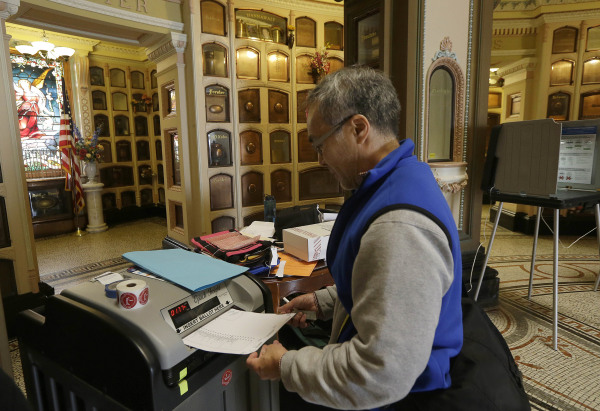- Joined
- Dec 6, 2010
- Messages
- 33,424
- Reaction score
- 5,685
California Gov. Jerry Brown (D) on Wednesday signed a measure moving the state's 2020 presidential primary to March — a move likely to give the nation's most populous state more sway in the nominating contest.
California has typically held its primary in June, often weeks after the eventual Republican and Democratic presidential nominees have rounded up the delegates to secure their party's nomination.
But under the legislation signed Wednesday, California's primary would fall on Super Tuesday, when several other states hold their primaries, forcing candidates to compete more aggressively in the Golden State.
Brown did not issue a statement with his signature. But California Secretary of State Alex Padilla, who backed the move, said that the new date would prompt candidates to focus on issues relevant to his state's voters.
“The Golden State will no longer be relegated to last place in the presidential nominating process,” he said in a statement. “Candidates will not be able to ignore the largest, most diverse state in the nation as they seek our country’s highest office."
The Democratic Party could penalize California for moving up its primary by stripping dozens of delegates from the state's overall count. But according to the Sacramento Bee, California would still make up a sizable share of the delegates available up to that point in the nominating process.
http://thehill.com/homenews/state-w...up-2020-presidential-primary-to-super-tuesday
Last edited:




